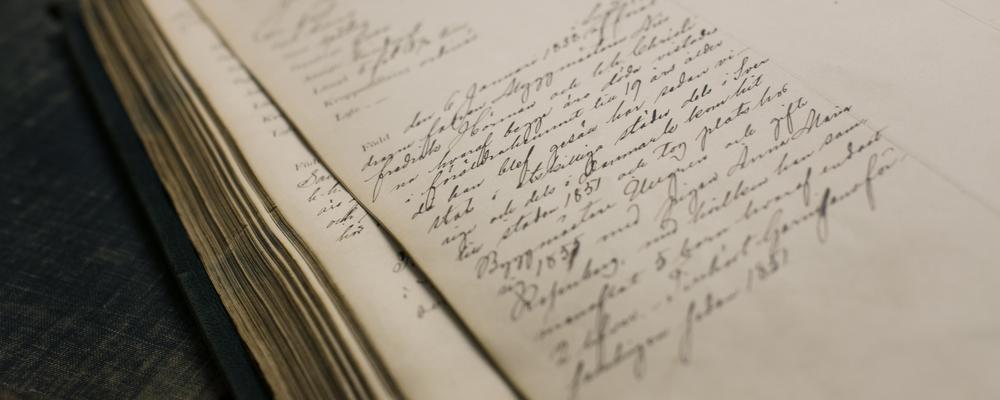
- Home
- News and events
- Find news
- AI and citizen science create new opportunities to study the history of Gothenburg
AI and citizen science create new opportunities to study the history of Gothenburg
Are you interested in Gothenburg’s hidden history from the late 19th century, involving everything from vagrants and drunken sailors to stolen violins and emigrants’ lost trunks? Thousands of handwritten police reports have been transcribed with the help of AI and they will be made freely available online from 1 February.
The first results are now being released from a project at the Swedish National Archives in Gothenburg, in partnership with GPS400: Centre for Collaborative Visual Research at the University of Gothenburg, which aims to make archive material available in a ground-breaking way – for researchers and the general public alike.
The project is creating a whole new platform for researching the history of Gothenburg during a period of major urbanisation, industrialisation and migration – all based on advanced AI technology and contributions from knowledgeable volunteers among the general public.
New technology for access to the archives
In recent years, research has made huge advances in the automated transcription of old, handwritten texts. This Handwritten Text Recognition (HTR), as it is known, has been achieved through a form of artificial intelligence, where a computer program is trained to understand how to interpret figures in an image and translate them into characters.
Transcribed archives create new ways of searching for and using information, in stark contrast to the traditional way of digging out the required information from an archive, which is often time-consuming. With full transcriptions of the material, you can now simply conduct a free text search – a dream come true for many archive users!
The Detective Branch
The first archive material chosen for the HTR project is police reports from the Detective Branch of the Gothenburg Police 1868–1902, which comprises around 22,500 pages. This period saw Gothenburg’s population double and over half a million emigrants pass through the city.
The Detective Branch was established in the 1850s to conduct investigations as plainclothes police officers. The branch had a permanent team from 1868 onwards, and they began to keep “report books” containing copies of all the outgoing reports from the branch.
The content of the report books has huge potential for academic research, not to mention local and personal history research. The results of the project will be made freely available for everyone to access via the website of the Swedish National Archives and will be closely examined at GPS400.
Citizen science with public participation
Helped by knowledgeable members of the public, the computer program has been trained up to the point that it can now transcribe the report books with 97 percent accuracy. To make sure the quality of the transcribed data is as high as possible, the participants will now continue with the next stage in the process – correcting the errors in the automated transcriptions.
The first five out of 35 "report books" are accessible from the first of February through the Swedish National Archives website. More information will be added through out the year.
In the project the Swedish National Archive is collaborating with members of the public and GPS400: Centre for Collaborative Visual Research at the University of Gothenburg. The project is supported by funds from Swedens innovation agency Vinnova.
Links:
The first five report books are accessible through the Swedish National Archives website: https://sok.riksarkivet.se/htr
Read more about the porject at the Swedish National Archives website: https://www.riksarkivet.se/htr
More information about GPS400: Centre for Collaborative Visual Research: https://www.gu.se/centrum-samverkande-visuell-forskning
Listen to (in Swedish): Ny teknik transkriberar handskrivna dokument - P1 Släktband P1, 2021-01-29
Contact:
Mats Jönsson, GPS400, email: mats.jonsson@gu.se
Karl-Magnus Johansson, Swedish National Archives, email: Karl-Magnus.Johansson@riksarkivet.se

